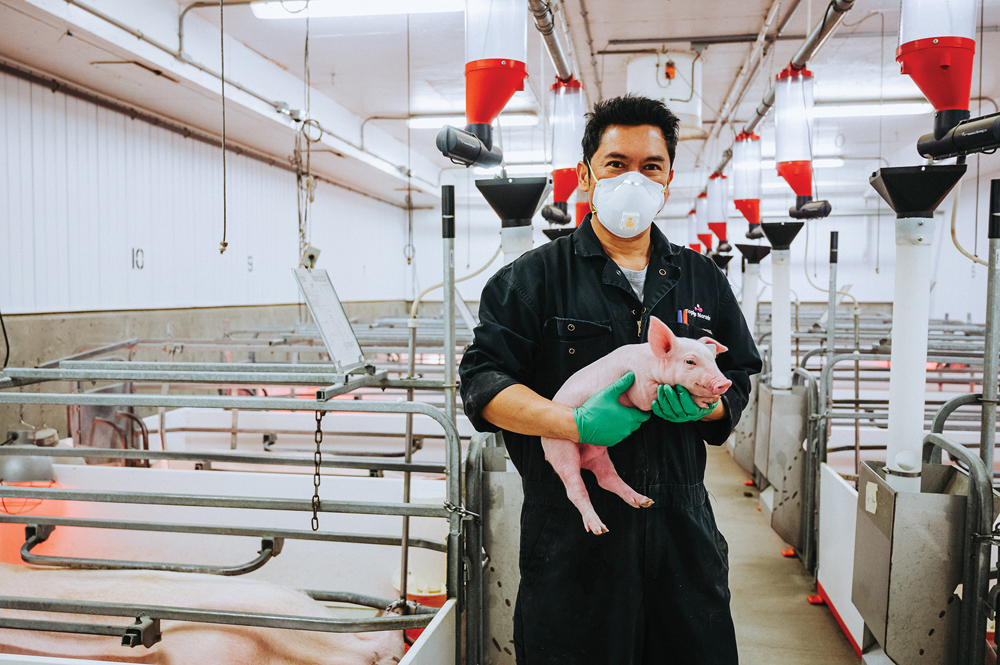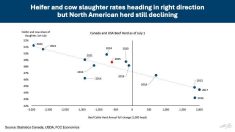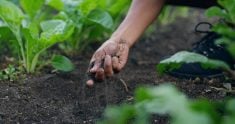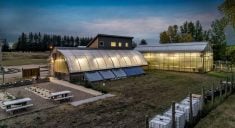Hog barn workers and other pork industry staff will soon have a pathway for professional development, according to Assiniboine Community College and the Manitoba Pork Council.
The Brandon college has announced that a new Swine Production Foundations program will soon join the catalogue.
Why it matters: Workers will be able to access industry knowledge and education on best practices without the need to take a scheduled, in-person class.
Read Also
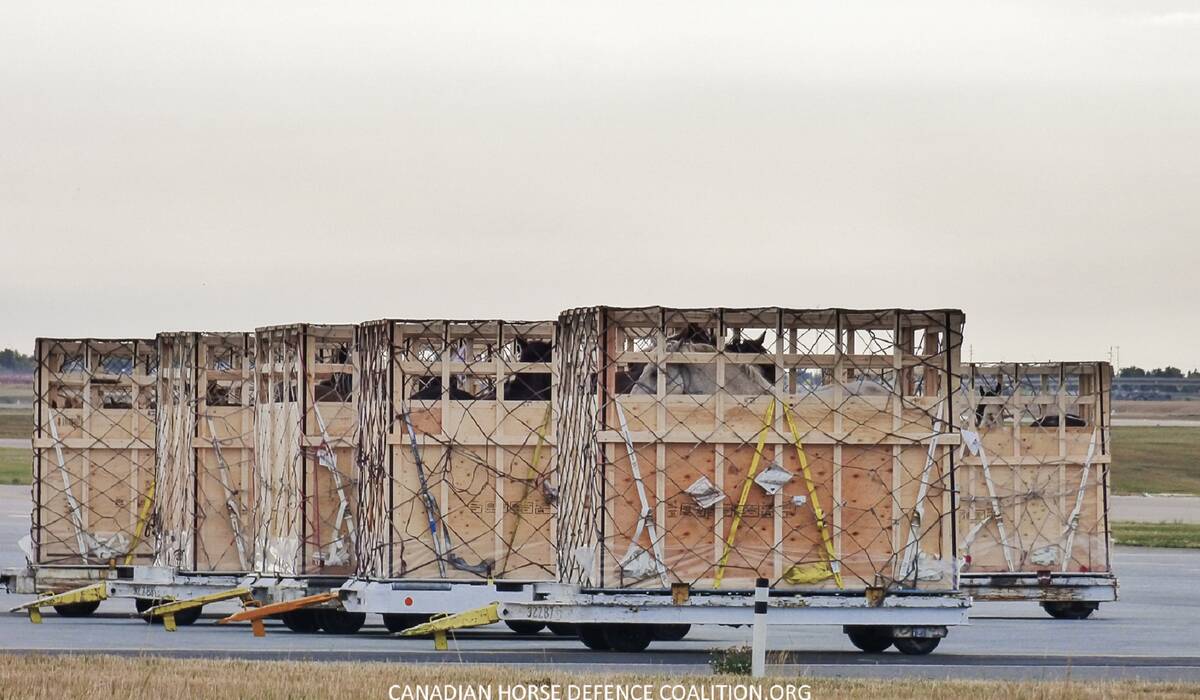
Horse welfare trial begins in Manitoba
Private prosecution of Manitoba horse farm, based on a 2022 horse export shipment, awaits judge’s verdict after two-day trial in Winnipeg.
The program was developed in collaboration with the pork council and will include the latest information on health and safety, operating regulations, record keeping and barn systems and maintenance, the college said.
[RELATED] Public increasingly positive on hog sector, says Manitoba Pork
Tim Hore, dean of ACC’s Russ Edwards School of Agriculture and the Environment, said the program will “meet the needs of modern animal care standards and address workforce needs.”
“The program will train the next generation of hog farmers and swine technicians to uphold the strong animal care standards the hog sector is responsible for,” he said.
Pork council chair Rick Préjet said course content will largely echo previous programming, albeit with updates to reflect changed industry standards.
The biggest change will be in course delivery. The college said the new program will be offered digitally and will be self-directed.
That will better mesh with the schedules of students, many of whom are already working in the pork sector, Préjet said. The pork council noted poor uptake with the previous program, part of which was blamed on difficulty finding time to take an in-person course.
“It’s much more flexible for producers to take and for employees to take,” Préjet said. “That was the key. It’s online. It’s more individualized as far as when you want to get onto it.”
Producers will be better able to tailor course content, prioritizing the modules that reflect their jobs, he added.
“It was not necessarily everybody who was interested in learning about … genetics for example, if they were working in a certain part of the barn where that’s not their main interest,” he said. “Breaking it up that way was a big part of getting it to the point we are today.”
The program is expected to be of particular interest to independent producers and new farm workers. Those from vertically integrated operations are not excluded, Préjet said, but many larger companies have their own in-house education opportunities.
“I think the big thing is to have consistency on the messaging on everything … just so everybody’s really on the same page at the end of the day.”
First intakes to the program are expected in December.


